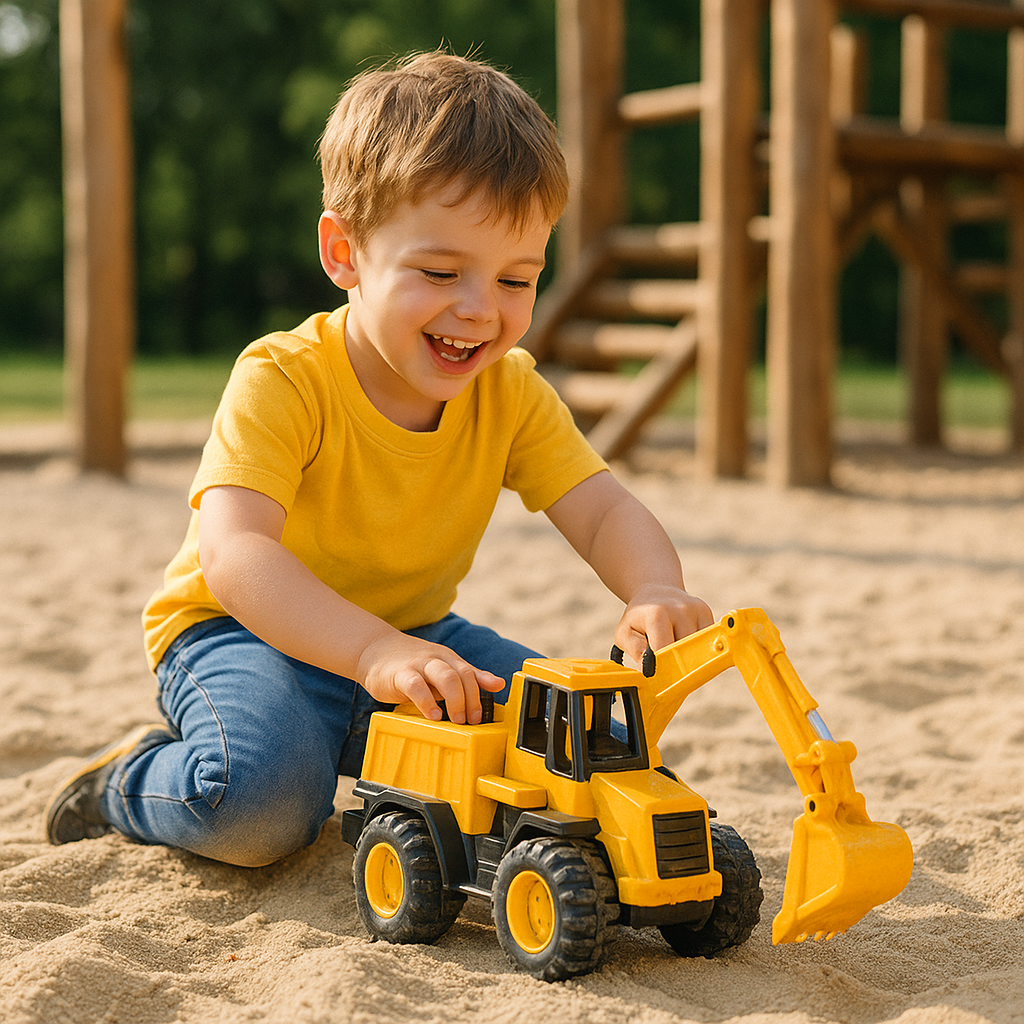
Getting Dirty is Good: The Impact of Playing with Soil on Children’s Health and Development
Share
In a world dominated by screens and sanitizers, letting kids get their hands dirty in the soil might seem counterintuitive. Yet, research increasingly supports that playing in the dirt is one of the healthiest things children can do—benefiting their immunity, mental health, motor development, and even social skills.
Let’s explore what the science says about the value of soil play.
🌱 1. Strengthens the Immune System
One of the most cited benefits of soil exposure is its positive impact on immune function.
-
A groundbreaking study published in Science (2007) by Rook et al. introduced the “Old Friends Hypothesis”, suggesting that exposure to environmental microbes (like Mycobacterium vaccae found in soil) helps regulate the immune system, reducing the risk of allergies, asthma, and autoimmune disorders.
-
In Finland, a 2020 randomized trial by Roslund et al. in Science Advances showed that daycare children who played on natural forest floors had significantly improved skin and gut microbiota diversity, leading to stronger immune profiles after just 28 days.
🧠 2. Boosts Cognitive Development and Focus
Soil-based play fosters exploratory behavior and sensory integration, which are foundational for early brain development.
-
In a Frontiers in Psychology (2018) study, children who engaged in free outdoor play with natural elements—including soil—demonstrated improved attention spans and executive functioning over a six-month period compared to those in traditional playgrounds.
-
Contact with natural textures, like soil, stimulates the somatosensory cortex, helping develop tactile discrimination and sensorimotor coordination.
😊 3. Reduces Stress and Enhances Mood
Getting hands in the dirt may be just what a stressed child needs.
-
Researchers at the University of Bristol (2007) found that Mycobacterium vaccae in soil activated neurons in the brain responsible for serotonin production, the hormone associated with happiness and emotional regulation.
-
The effect has even been called “natural antidepressant therapy” for children, especially those with anxiety or behavioral challenges.
✋ 4. Improves Fine and Gross Motor Skills
Digging, scooping, patting, and shaping soil are excellent for motor development.
-
In Early Childhood Education Journal (2016), kids who had frequent outdoor play sessions involving dirt showed stronger hand strength, dexterity, and bilateral coordination than peers who mostly played indoors.
-
Soil play also enhances core strength and balance as kids crouch, shift, and explore the ground.
🧩 5. Encourages Social Interaction and Creativity
When children play with soil, they often build worlds, share tools, and invent roles, which fosters both cooperation and imagination.
-
A qualitative study in International Journal of Play (2021) found that soil-based play settings promoted more frequent and cooperative group play, compared to structured environments.
-
Whether building a “mud bakery” or digging a “dinosaur cave,” soil is the ultimate open-ended material for imaginative expression.
✅ Summary of Benefits
| Area | Effect |
|---|---|
| 🛡️ Immunity | Microbial exposure strengthens the immune system |
| 🧠 Cognition | Enhances sensory integration and focus |
| 😌 Emotion | Promotes serotonin production and reduces stress |
| 🏃 Motor Skills | Supports fine/gross movement and coordination |
| 👧 Social | Sparks cooperation and creative role play |
🧾 Tips for Parents
-
Allow regular supervised outdoor time with soil or garden areas.
-
Provide simple tools (spoons, buckets) to enrich sensory experience.
-
Avoid over-sanitizing after dirt play; gentle soap is sufficient.
-
Make it fun—join in and dig together!
